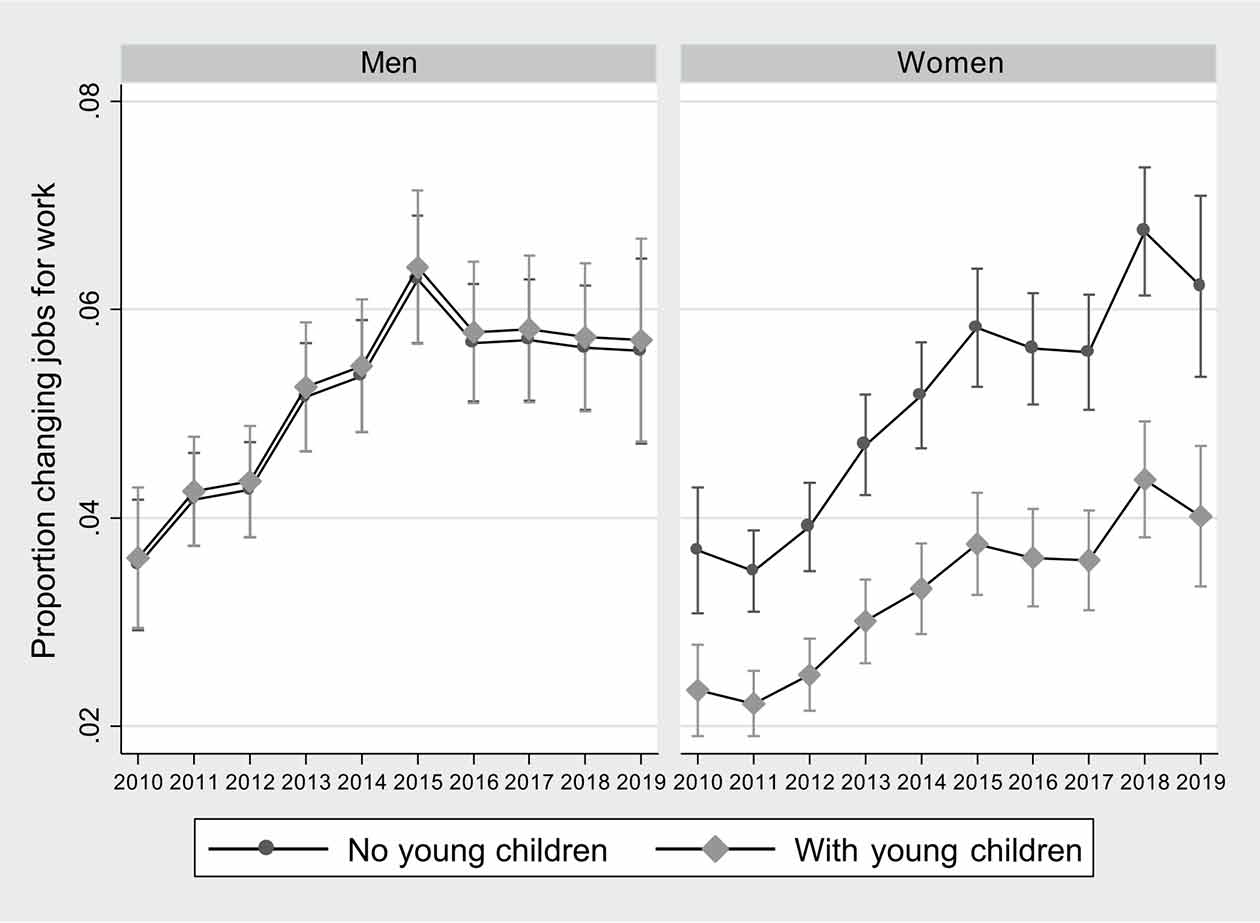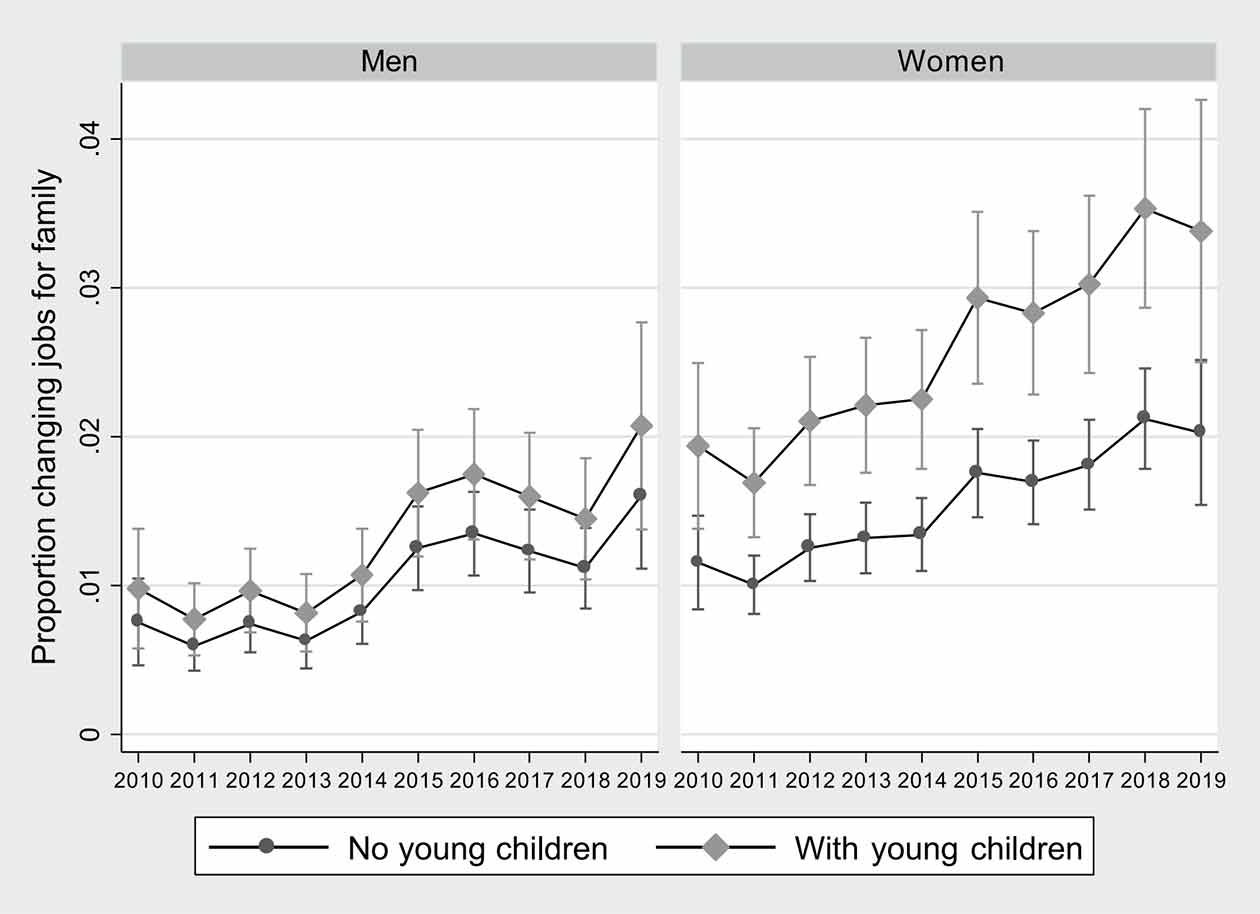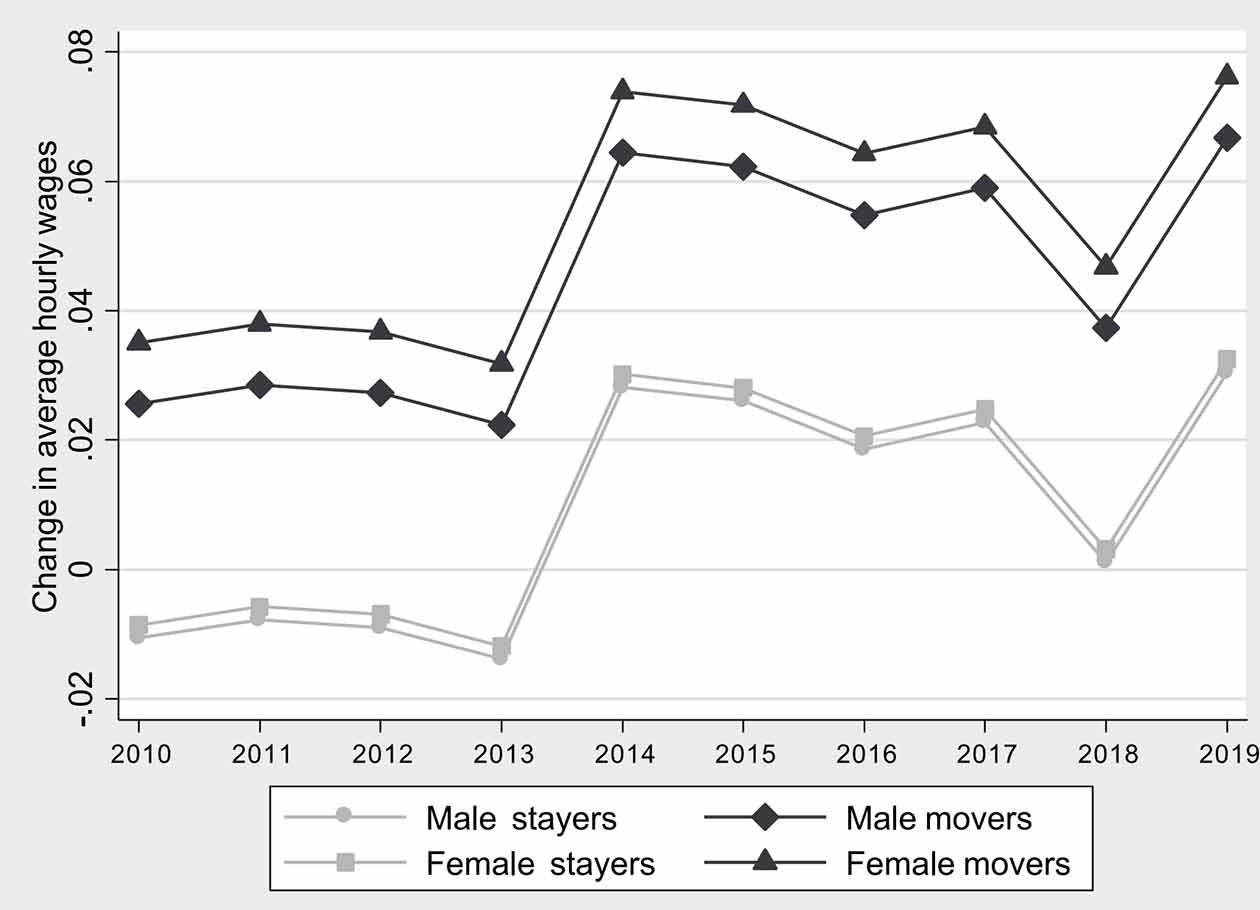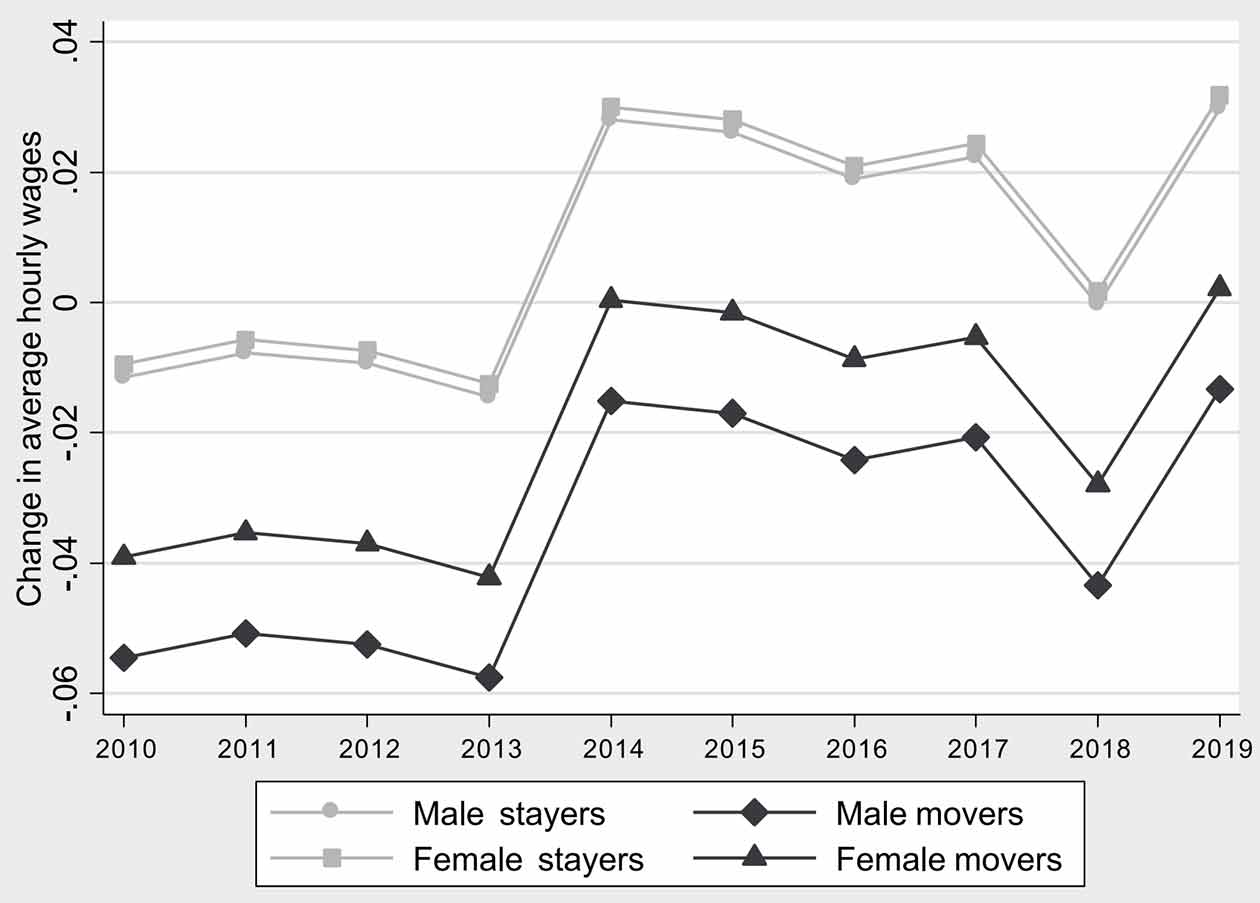Why is job mobility important?
Job mobility is important for pay growth. Workers who switch jobs and/or employers often experience higher wage growth compared to those who do not. The positive effect of job mobility on pay growth can be explained in at least two ways. First, mobility enables workers to find jobs that better match their skill and potential. In this view, young workers are particularly likely to benefit from mobility. Second, mobility is important for limiting employer’s wage setting power. Workers who for whatever reason are reluctant to leave their employer have less bargaining power and will likely experience lower wage growth as a result.
If mobility is important for pay growth, gender differences in job mobility will translate into differences in pay. Women with family/ care responsibilities especially may be more constrained in their mobility. Family/care responsibilities increase the time and energy cost of job search and limit the job opportunities that can be taken up because of the need to prioritise non-wage job attributes such as shorter commutes, shorter or flexible working hours etc.
Our research
We used the first 10 waves of the UK Household Longitudinal Study (UKHLS) to examine gender differences in mobility patterns, as well as in returns to mobility. We were able to go beyond existing studies and distinguish within and between employer job changes, as well as between employer changes motivated by different rationales.


Note: movers are employees who change employers for work, respectively family reasons; stayers are employees who do not change employers.
Source: authors’ calculations based on UKHLS, 2009-2019
Key findings
- Men and women’s overall mobility (i.e., including all job and employer changes) levels are very similar
- There are however important qualitative differences: women with young children are much less likely to change employers for wage/work related reasons and much more likely to change employers for family related reasons, compared to men and women with no young children; they are also less likely to change jobs with the same employer
- Young children do not impact on the mobility patterns of men
- Different types of mobility have very different wage returns. Changing jobs within employer and changing employers for wage/work related reasons are associated with two to four percentage points higher wage gains. In contrast, changing employers for family reasons is associated with wage penalties of around three to four percentage points
- We do not find any evidence that women and men experience different wage returns to the same type of mobility


Note: movers are employees who change employers for work, respectively family reasons; stayers are employees who do not change employers.
Source: authors’ calculations based on UKHLS, 2009-2019
Authors’ main message
Job mobility is important for wage growth throughout the life course. Family responsibilities affect the mobility of women (but not that of men) in two ways: they reduce the opportunities to take up higher paying jobs and compel women to prioritise non-wage job attributes facilitating a work-family balance. These constraints translate into significant wage penalties.
© MiSoC March 2022
DOI: 10.5526/misoc-2022-001
